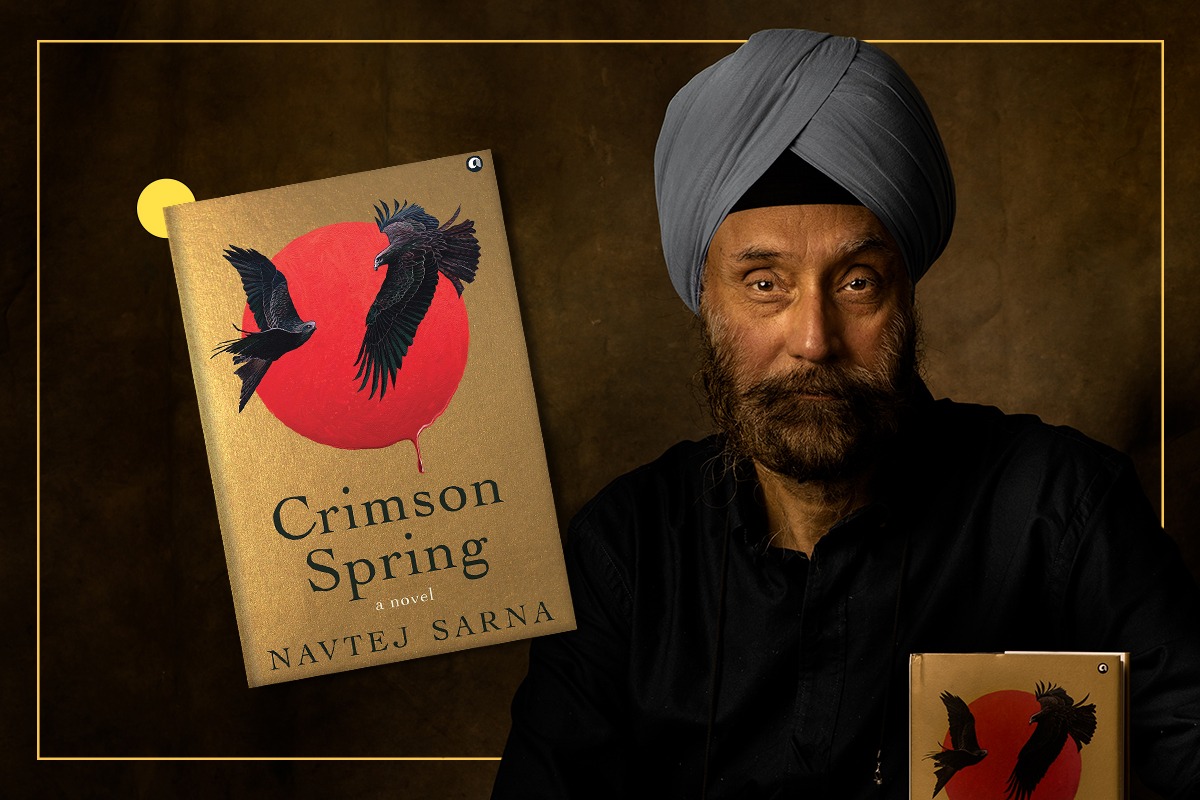
Diplomat-turned-author Navtej Sarna revisits the Jallianwala Bagh in the most meticulous and overwhelming manner. Kunzum’s Divye Bhagwani talks to him to learn all things about fictionalising a factual event.
On 13 April 1919, about twenty-five thousand unarmed Indians had gathered in Jallianwala Bagh in Amritsar to denounce the iniquities of the Rowlatt Act. British troops open fired and killed several hundreds of people. In his masterpiece Crimson Spring, Navtej Sarna brings the horror of the atrocity to life through the eyes of nine characters — Indians and Britons, ordinary people and powerful officials, the innocent and the guilty, whose lives are changed forever by the events of that fateful day. Read on as Kunzum’s Divye Bhagwani talks to him about his writing career and the form of fiction.
A Conversation with Navtej Sarna
Kunzum: You’ve written around 10 books, most of which you wrote while you were working as a diplomat. Did being a diplomat complement your writing career?
Navtej Sarna: That’s a good question, and that’s normally what I’m asked every time a book comes out. But yes, I didn’t find the diplomatic career coming in the way of my writing, and I was actually writing before I became a diplomat and I continued to write. It’s just that I started writing. I wrote different kinds of books. I didn’t write political books, I didn’t write foreign policy books but I wrote fiction — I wrote literature. I wrote stories, I wrote novels, I did translations. And actually being a diplomat was very useful because, you know, it gives you a great chance to travel — a great chance to see the world — to experience different cultures and frankly it enriched my writing future.
Kunzum: For your novel Crimson Spring, you visited Jallianwala Bagh so you could write about its history. What do you think is the importance of visiting the place you’re writing about?
Navtej Sarna: Well, I think it’s always good to get a feel of what you’re writing about so I actually visited it. I mean, I visited it many times but frankly I was looking at the place not from the perspective of today but about a 100 years ago. So I was visiting more in old documents, old maps and descriptions — not really physically today. But obviously it helps to get a physical feel of the place, even though it has changed dramatically since that time.
Kunzum: The events in the novel are completely factual but why did you choose to write a fictional novel instead of a non-fiction book?
Navtej Sarna: I mean, the main event is factual and of course the dates are factual. The broad trends are also factual. But then, you know, facts are populated by a lot of ordinary people, different points of view, different feelings. So, a fictional package, so to speak, gives you the opportunity to explore what was happening from different points. What were the personal stories, the personal predicaments of ordinary people who were around at that time. So you know, a fictional factual event is one thing which is large, very global, but there are personal tragedies, personal stories. How these large historical events impact ordinary people in a very personal way. So that is where fiction comes in.
Kunzum: Following up on the last question, how do you sort of tread the line between fiction and reality. How do you decide what’s to be creatively envisioned and what’s to be told factually ?
Navtej Sarna: Fairly easy if you decide your basics because once you decide that you don’t want to distort any facts, then you know what already exists, what is given, what is proven, and then you find the gaps. And then you find minor characters who are not there in big histories, characters that are important to tell the tale. So, you know, you mix the two in a way which does not distort history, but yet gives an opportunity for you to see proper history as well as fill in the psychological dimension, the emotional aspects of history, which non-fiction doesn’t get into.
Kunzum: How does it feel to have finished a book and to see it in the final form? I would think the feeling would be much more complex than just fulfilling.
Navtej Sarna: That’s a very satisfying feeling. It’s writing a book, no matter whichever kind of book you write, it is very hard work. And so at the end of it you do get a feeling and if people like it, then so much better.
Kunzum: So last question, do you have any recommendations for our readers as well?
Navtej Sarna: Well, you know, there are hundreds of books out in the market. I think people should read what they really want to and not what turns them off.
Related: Batshit: Kritika Kapoor On Her Feminist Horror Debut Fiction
